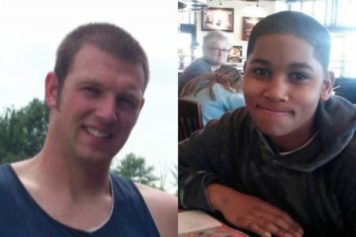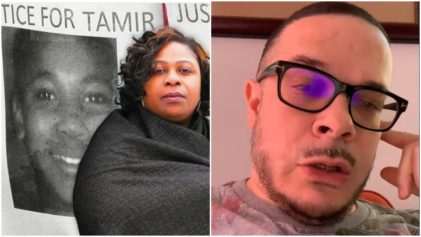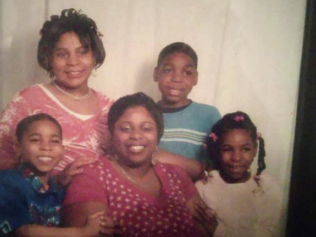When Machelle Garland first heard that the Staten Island grand jury wasn’t indicting police officer Daniel Pantaleo in Eric Garner’s death, she felt a unique hollowness inside. Not just because another life was lost without any repercussions, but because she’s the mother of three Black boys. And her usual worry about their safety instantly transformed into constant terror.
“When Dr. King said that there were dark days ahead I thought we had gotten to a point where we had put those days behind us, but it seems like we are just going into those,” Garland said. “As a mother of Black boys, I’m always concerned, because unfortunately we live in a world where sometimes you are prejudged based on the way you look, and the preconceived notions that people have about you.”
Garland, who works as a counselor at an elementary school in Griffin, Georgia, has always done her best to keep her boys safe. She raised them in the church, made sure their pants were rarely sagging and tried to teach them to always be polite. But these days she wonders if that’s enough.
“I tell my sons to be aware and to know that there is always that possibility that someone is going to perceive you in a way that is not true and I talk to them about the things that have happened in the past, because it could always be you,” Garland said. “Travyon didn’t think that could possibly happen to him either, so you have to always be on guard simply because of how you look.”
With the Michael Brown verdict of no indictment, people were uneasy, but at least parents could take some, albeit small, comfort in the fact that there was no concrete evidence of the struggle between Brown and his killer Darren Wilson. There were contradicting testimonies and evidence that blurred the story line. You could tell yourself that maybe there was something Michael could have done differently.
But Eric Garner’s murder is on tape. There are no contradictions in the way officer Daniel Pantaleo brutally put Garner in a chokehold—that has been banned by the NYPD since the 90s—and suffocated him as Garner pleaded that he couldn’t breathe. Yet, a grand jury decided not to indict Pantaleo.
This verdict forced one mother to have a conversation with her son she had hoped to never have.
Single mother Marsha Foster had been raising her son in various cities, including Las Vegas, Atlanta and Virginia. The neighborhoods they lived in had always been diverse, so Foster never thought racism was something she would have to explain to her son.
“I didn’t think Nick was in a position to be subjected to racially fueled aggression simply based upon his demographics, where he goes to school and his social life,” the army vet said of her 16-year-old. “I just had to tell him to be aware that racism still exists and that it’s important to be aware of this and not put yourself in situations that make you stand out negatively.”
Even mothers with adult sons are worrying, because with Garner it has become even more apparent that age can’t spare you from brutality.
Georgia resident Dianne Britain thought that once her sons grew up and moved out, most of the stress she felt for them would be gone. These recent cases have made her rethink that notion.
“When my sons were growing up I used to hate to hear a siren, but it was for the usual reasons,” the childcare professional said. “I didn’t think they would be the ones killing them like that. I used to think that if my sons were killed by police they would have to pay for it but now it doesn’t matter. They are just killing them because they can.”
Although these conversations have become vital in Black households, the question of whether these talks are actually helping still remains. Because no matter how safe you tell your son to play it (always be polite, never go out past 8 p.m. and, God forbid, don’t put on a hoodie) someone may still find his actions and skin color reason enough for murder.


